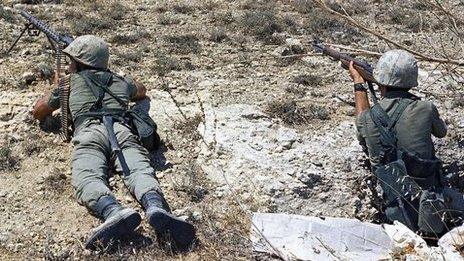Cyprus peace talks: Rocky road to reunification
- Published
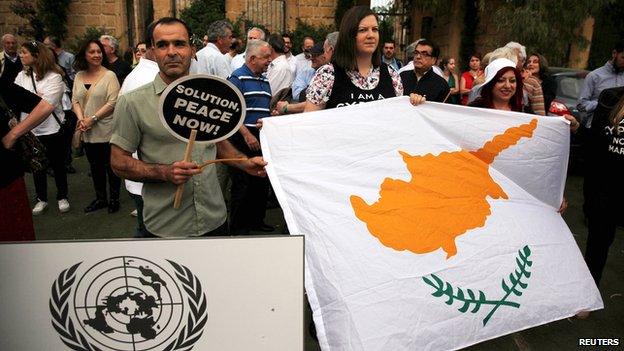
Peace activists rallied outside the talks venue in Nicosia last month
If political courage alone is what it takes to end the decades-long Cyprus conflict, then a solution should be just months away.
Substantive talks brokered by the United Nations with the aim of reuniting Cyprus start on Wednesday, after a lengthy period of stalemate.
The recent election of Mustafa Akinci as Turkish Cypriot leader is widely seen as a game-changer - one that has significantly increased the chances of finding a solution.
His first act on assuming office was to abolish the "entry visa" for visitors to northern Cyprus - something that had long angered Greek Cypriots.
For the first time since Greek Cypriots rejected the UN's 2004 reunification plan, the communities now have leaders with both the will and political acumen necessary to reach a solution.
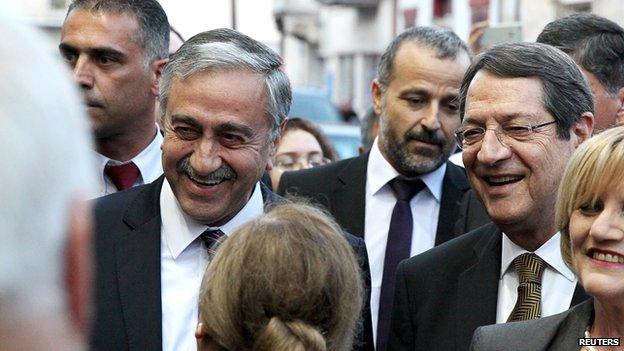
Mr Anastasiades (right) and Mr Akinci are seen as pragmatic, pro-solution leaders
The sight of Mr Akinci and the President of the Republic of Cyprus, Greek Cypriot Nicos Anastasiades, sitting together at a theatre in the southern city of Limassol, clearly relaxed and enjoying one another's company, sent a message to both sides that they were ready to do business.
Mr Akinci, an astute pragmatist, well-versed in the art of the possible, cut his political teeth as mayor of Nicosia in the aftermath of the 1974 Turkish invasion. The city had effectively been divided in two and its integrated sewage system had stopped working.
There was a strong stench in the air and the threat of an imminent health crisis. Mr Akinci and his Greek Cypriot counterpart succeeded in fixing it. On the face of it, a prosaic, but mutually beneficial arrangement.
But this was at a time of heightened tension, when Greek and Turkish Cypriots were angry and frightened.
The conflict was still uppermost in people's minds. There were no telephone lines between the two sides and any kind of official meeting between the two men was out of the question.
By night Mr Akinci secretly crossed the mined buffer zone dividing Nicosia, for private meetings at the Greek Cypriot mayor's home.
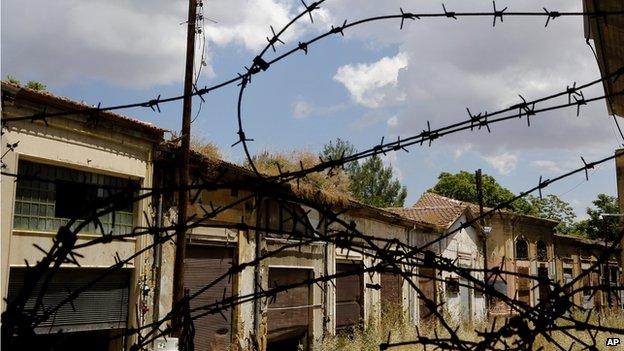
Abandoned buildings have decayed in the buffer zone since 1974
Juggling act
Like Mr Akinci, President Anastasiades is an experienced politician. A political heavyweight, who is capable of being combative, he is not afraid to speak his mind.
He was one of a handful in his party to endorse the doomed UN reunification plan, and more recently pushed through painful economic reforms - a condition of the recent IMF bailout - in the face of considerable public opposition.
So, with two pragmatic pro-solution leaders, the odds should be very good indeed. Except, as ever with Cyprus, it is a bit more complicated. The problem is getting all the squares on the Rubik's cube aligned simultaneously.
Mr Akinci, despite having a public mandate to reach a deal, has Turkey's President Recep Tayyip Erdogan looking over his shoulder.
The Turkish Cypriot leader has already said he believes that the traditionally close relationship between northern Cyprus and its "motherland" Turkey should move towards a more fraternal "brother-sister" relationship. So differences of opinion with Turkey can be expected.

Issues to be resolved:
Governance: Broad agreement that the new state should be based on a federal model; but how loose should that federation be?
Security: For Greek Cypriots, the continuing presence of 35,000 Turkish troops on the island is an outrage, a constant reminder that their country is occupied. Many Turkish Cypriots consider a Turkish military presence as vital, at least until they feel secure in a federal Cyprus
Territory: How much land should be administered by each community?
Property and refugees: A hugely emotional issue. Around 200,000 Cypriots were forced from their homes as a result of the conflict. Arrangements for their return, or for appropriate compensation, would be complex and protracted

Mr Anastasiades, for his part, would have to win over an electorate which is historically suspicious of Turkey and is now smarting from the financial crisis of 2013.
He has repeatedly emphasised that a political solution would bring significant economic benefits. But the recent hardship has only deepened Greek Cypriots' mistrust of their leaders.
Both men need to deal with the fact that little has been done to educate the public about what living together would actually mean.
Dr James Ker-Lindsay of the London School of Economics says that "for many observers, the key question is whether a united front will emerge to take on the hardline opponents to a deal".
Mr Akinci and Mr Anastasiades may well be the best hope for reunification in several decades, but they are not there yet.
Despite the optimism, there are now several generations of Greek and Turkish Cypriots who have no experience of living together and have passed through education systems that teach Greek and Turkish patriotism, rather than emphasising a shared Cypriot identity.
Tabitha Morgan is a Cyprus analyst and author of Sweet and Bitter Island: A history of the British in Cyprus.
- Published15 May 2015
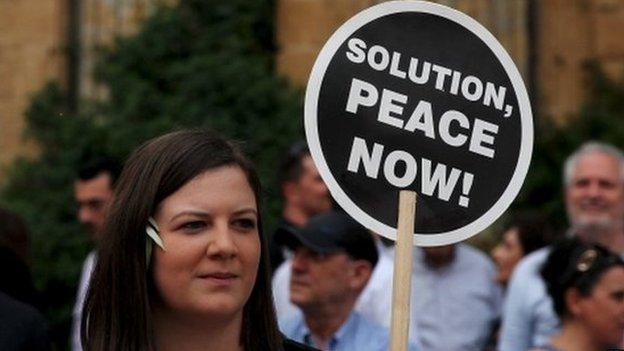
- Published26 April 2015
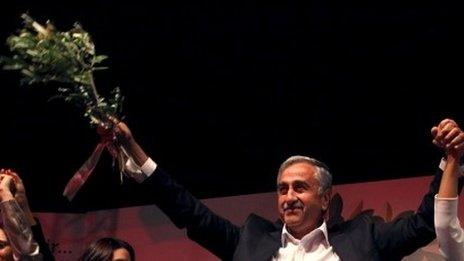
- Published7 April 2023
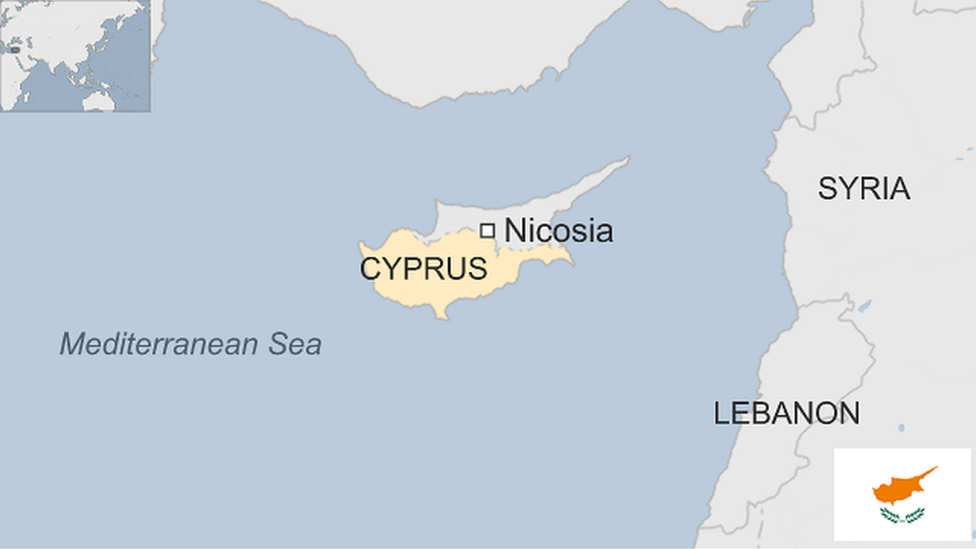
- Published1 October 2014

- Published12 May 2014
